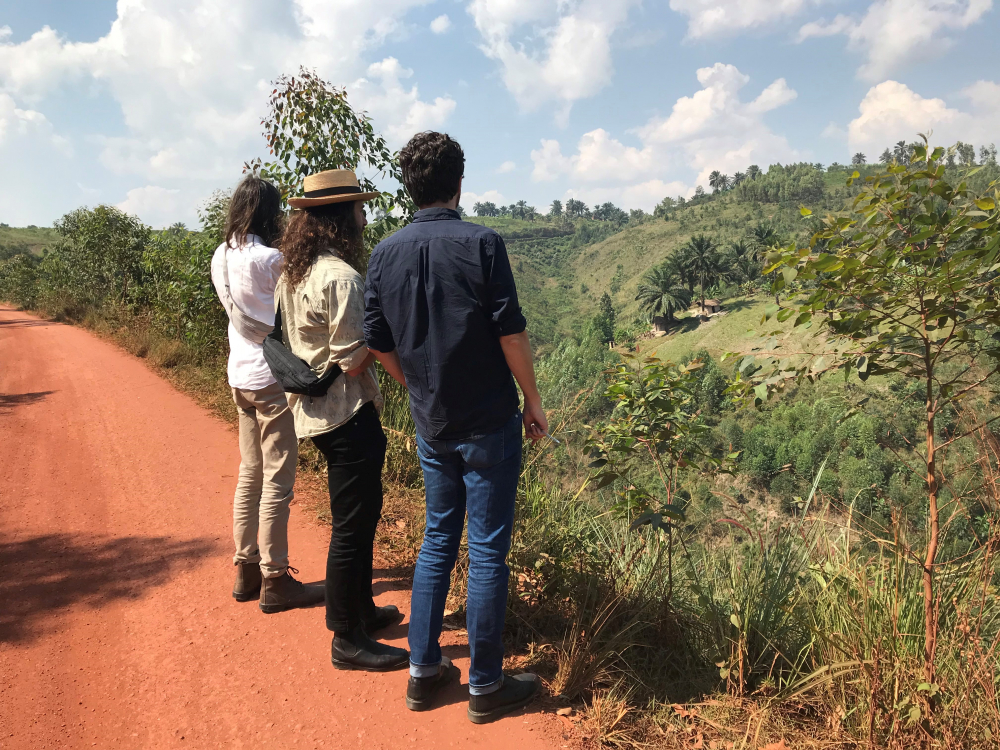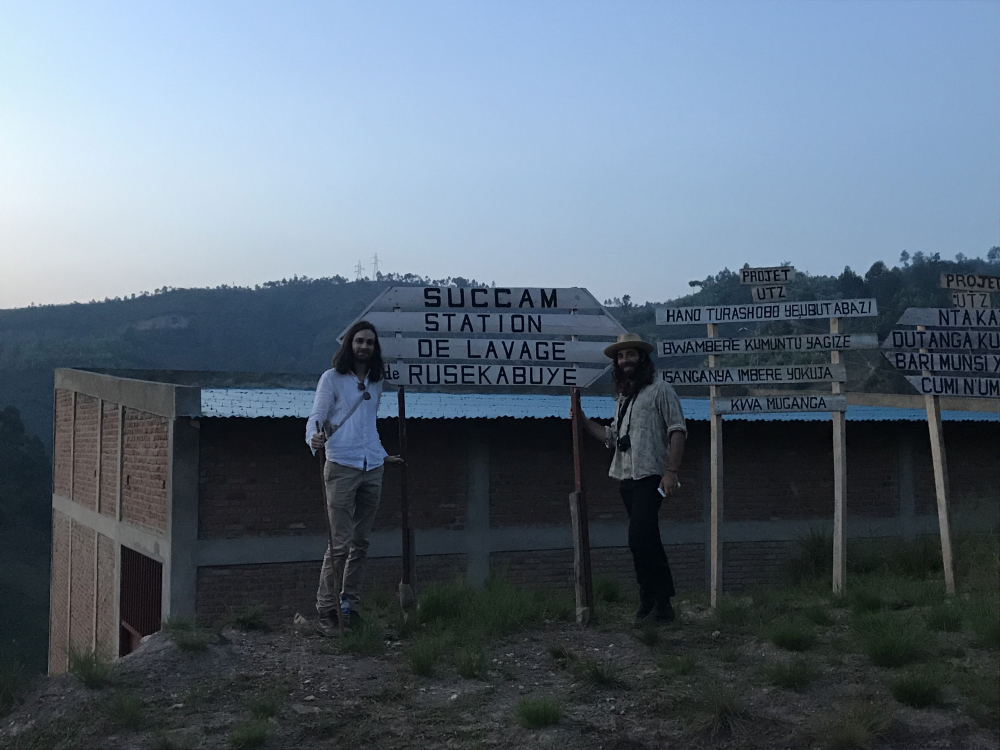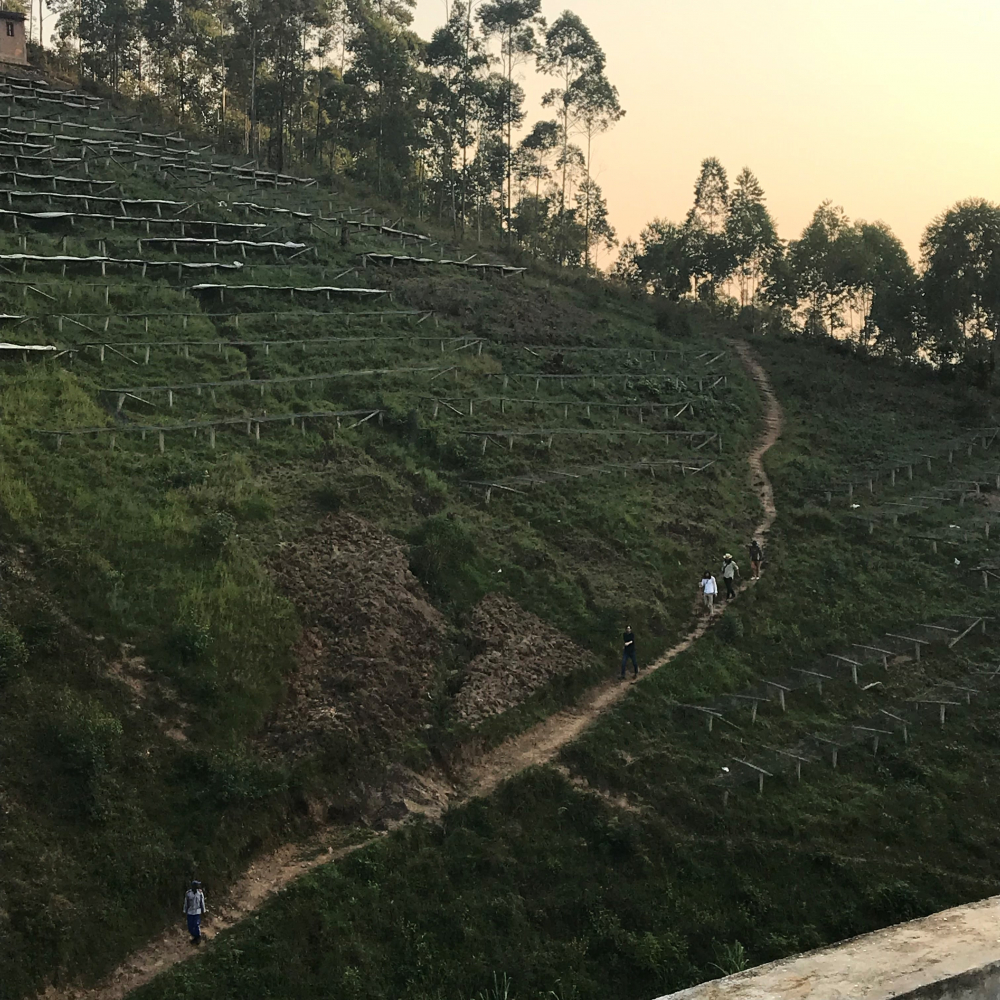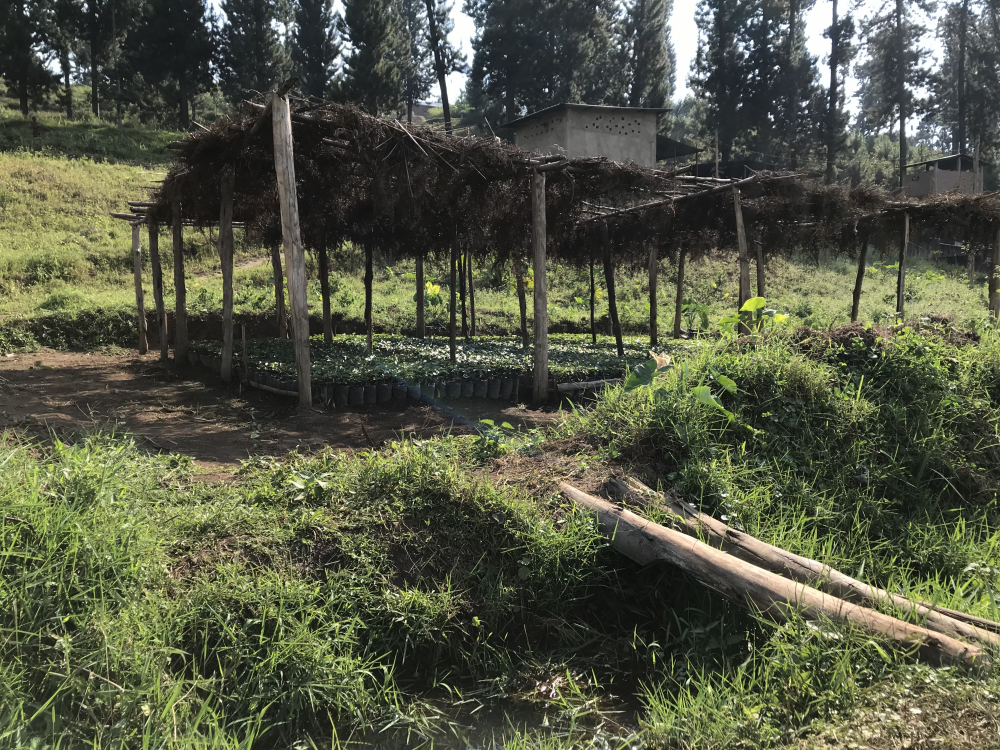Crop evaluation after completion of harvesting period and before the start of export period.
Evaluating new crop in Burundi by Antoine
Coffee Facts
BIF local currency is now valued about 3’100 for one USD on the black market, while the official rate is still BIF1’860 for USD1. This is about 30% devaluation in one year, while official statistics paint a rather ok inflation with about 7% in 2019, this is below the average for Burundi sitting at 10% or so. Given the devaluation of the currency we don’t really understand where such ‘low’ inflation statistics are produced … indeed Burundi doesn’t produce much and imports most consumer goods.
Coffee farmers who receive BIF500/kg of Cherry are actually not content anymore with such a price, even if that is correlated with a 140 market level … Indeed their purchase power is decreasing every day, due to devaluation, not to speak of the drop in revenue due to the very low crop cycle ...
Exporter licence is granted on a yearly basis, to date no Exporters have been granted with it .. hopefully by 26th of July the government clarifies its intentions… we can’t expect any export within July.
The official closure of the Fully Washed season is the 20st of July - then only can Semi Washed be traded in the country. This measure is designed to promote Fully Washed process production which generates better quality and supposedly improved revenue for the farmer community, certainly does the job for tax collectors …
To move from one district to another goods need to be authorized by a district administrator, basically collecting taxes off transiting goods. This came to our knowledge this year in particular as most coffees are blocked up country as District administrators are not being paid by local millers or Sogestal whom have no cash. A discussion is going on with Minister of Agriculture so millers can be relieved from immediate payments and summoned to pay on payment of exports
No exporter has been granted export licence as of yet for 19/20 season - yet to be authorized by the government … It is yet to be communicated what is needed to be done by exporters to be granted with Export license this year …
Crop evolution
Huge backlog from last crop still unsold and stored uphill in Burundi, talk about 20% of crop or some 65’000 bags! Mainly FW15+ coffees, the loss in value for the coffee sector is big, yet another stress factor for local millers who are yet to show this loss in accounting…
New crop comes in extremely low, probably 55% lower than last crop or about 165’000 bags of FW coffee. Reasons for such a low crop are not factually identified, it is an off cycle yet usually accounts for 20% drop max. Predominant view is that past crop was really big and trees are really old, really tired hence not in capacity to grow much fruit on next cycle.
Northern provinces are the most affected with down to ⅙ of the 18/19 crop cycle produced, it favors the consensus that old trees are worn out, Kayanza is the province where tree population is reputedly the oldest in the country. Central province is probably the less affected with about 35% loss in production. Mumirwa where Succam operates reports 55 to 65% drop in production. Kirundo about 60% loss etc …
We expected Semi Washed production to be higher this year, we shall know in a couple of weeks but seems that it might not even be the case, probably even lower than 18/19 2’500MT … And what is to be produced will be exported to Uganda as Stocklots, avoiding much taxes versus export as Semi Washed ABC.
In cup, we can expect the coffee to be better than past crop cycle where resurgence of potato has been high, due to higher volume production cycle in unfavorable conditions for post harvest with steady rainfall. This year conditions have been more favorable and we don’t expect much potato occurrence. What is really important is to make sure there is no mixing of past crop with new crop at dry mill level.
We have cupped already a number of lots from Mumirwa, Gitega and Eastern Provinces and cup profile is very engaging at this stage, despite being quite fresh still. Coffee will benefit from a month rest or so. September is perfect freshness shipment time FOB Dar or Mombasa.
Next crop 2020/21
Next crop cycle 20/21 is yet to kick started with flowering hopefully not too soon, ideally during August. For now the trees look rather ok for their age and we should expect a crop recovery toward 300’000 bags production if no adverse climate conditions.
Our view
Local millers are financially weak, yet operating, we believe export shall start despite all difficulties imposed by a government that is intervening so much head on the wheel that it can bite its own tail regularly. Yet export shall start, hard currency is too dearly required for the government to operate.
We try and provide the best outlet conditions for our partners on the ground, trying to develop a decent outcome in such conditions, developing sales of better grades, more premium on the variety of grades and hopefully the capacity in the near future to enroll more actors on certification / verification programs for enhanced resilience to distressful conditions Burundi provides for at the moment.

A nice story
Mike and Nile from Proud Mary, an influencer specialty roaster based in Melbourne, Australia joined Eli of CONDESA for this year field trip. Both live and breath quality & community. Mike and Nile started off with a bit of a ‘cold shower’ indeed on introduction meeting at Succam Mike raised the proposition to offer the farmers of Akawa Project to plant Geisha trees in Burundi and rich these amazing prizes etc … Indeed luring and very good thinking yet we agreed that we need to go step by step, so hard to temper passionate people on settling for more basic steps, yet after a week in the field we settled with a nice plan, realistic and achievable, yet ambitious, to make continuous progress in specialty processing as opposed to specialty farming; for now; while we bring the Akawa Project up to speed and gain traction with farmers, making sure that our collaboration with farmer communities is contributing and generating enthusiasm back to our dear coffee sector …

Mike and Nile got interested in the story of Rusekabuye, literally meaning the ‘man that hit a stone with his head and break it in thousands of pieces’. This Washing Station is the last built by Hilaire, operating since 2017, it took Hilaire a lot of courage to build it, indeed he was being intimidated by the only Washing station owner in the region, an actual minister of present government, with a lot of influence and nuisance capacity … Yet the farmers community of Rusekabuye would not let Hilaire chiver and repetitively asked for Succam to invest in the region as Succam holds the reputation of fair treatment to farmer communities.
The washing stations is located in a stunning yet broken landscape just across a summit mountain range covered in protected primitive forest. The farmer community delivering the cherry to Rosekabuye is farming below the primitive forest.

gide solidly built man is keeping the house, managing the operation, and what a house! It is actually going down and up the hill from reception of cherry / depulping down drying and up to more drying and then storage all the way up the opposite hill …
Aimable or ‘kind’ in french, 25 years of age is the youngest Agronomist at Succam, his youth is certainly no barrier to his creativity. Aimable is indeed very much into hygiene, and it pervades through the way he develops the program. He has ingeniously developed apparatus to wash your hands at the farm, as if you were entering surgery room, or build a table that is designed to dry the dishes of the household in a healthy way, the food safety at its earnest in the most remote part of the world enrolled and owned by the farmer community Aimable is in contact with, counting 928 members in 2019. The washing station has received about 160MT of cherry this year, or 416 bags of green coffee for export, rather solid given the context. Showing proof of how quickly Succam and its team was welcomed by the farmer community in the region.

